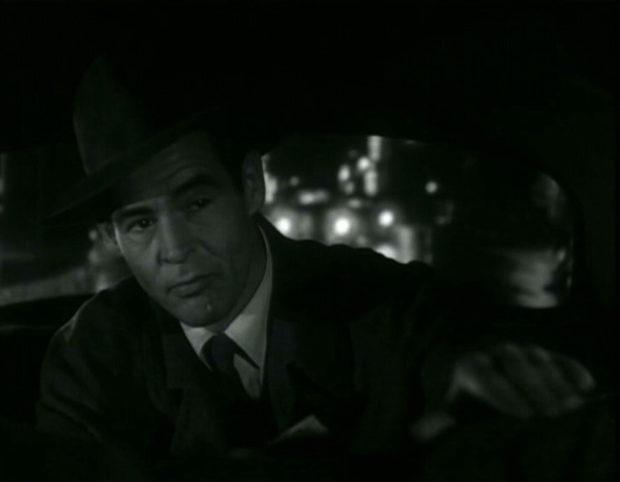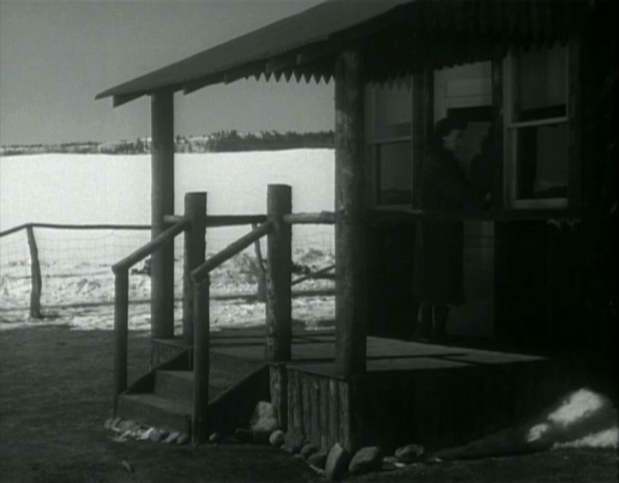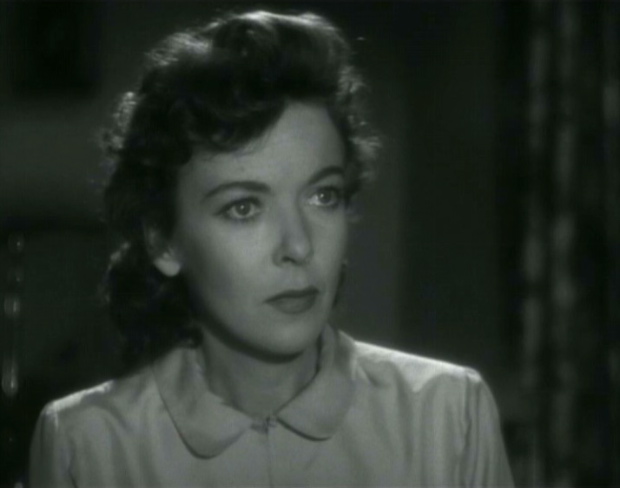
Nicholas Ray's On Dangerous Ground is a problematic film noir on many grounds but in an odd way it helps define the genre. More precisely, it helps us realize that film noir
isn't really a genre at all but a way of identifying a particular
strain of post-WWII dread as it came to infect many different kinds of
film.
This strain was characterized by a sense that the world had gone
hopelessly wrong, that existing paradigms for male identity were
suddenly useless in terms of setting anything right, that women, faced
with the existential nullity of men, were sudddenly in a position to
destroy them at will.
It's this profound and comprehensive existential dread that distinguishes film noir
from the dark pulp fiction of the Thirties, which investigated the
corruption of American society through the eyes of cynical but
personally incorruptible men like Chandler's Phillip Marlowe, or the
crime thrillers which gave us glimpses of the underworld while still
positing forces which could combat and contain it.
These popular forms took us on a tour of the wild side, the dark side of American culture, but the film noir suggested that there was no other side.
On Dangerous Ground violates every standard rule of Hollywood storytelling, and eventually most rules of the noir
tradition. The dream logic that propels the narratives of all
great suspense thrillers is stretched beyond conventional bounds —
just as in dreams sometimes incidents occur which make us realize, even
in the middle of the dream, that we must be dreaming.
Robert Ryan plays a cop on the edge of a total breakdown, overcome by
the sheer meanness of streets which can't be policed effectively except
by adopting the rules of the bad guys. For his own good he's sent
out to a rural community to help with a murder investigation, but
there's nothing redemptive about the country he enters. Bleak,
snow-covered, peopled by vicious, suspicious, isolated farm-dwellers,
it's just as soul-killing as the city he's left. It reminds one
of the landscape of Bergman's Winter Light — a place where the soul shrivels and dies.

But then he meets a woman, played by Ida Lupino — not the traditional femme fatale who waits to ensnare and destroy lost men in many films noirs
. . . but a blind woman paradoxically attracted by his distant,
unengaged treatment of her. His failure to pity or patronize her
gives her a sense of power, encourages her to trust him,
irrationally. And that trust saves him, gives his existence some
meaning.

The film, made at RKO, was much meddled with by studio head Howard
Hughes, which may account in part for its disjointed tone. Ray
disowned the film in later years, saying that Ryan's redemption
involved a miracle and that he didn't believe in miracles.
But the film believes in this particular miracle, and that's all that
counts. And even the miracle fails to violate entirely the dark
vision of the film noir,
since it presents us with a love that's possible only because both
partners in it are disabled, outsiders, in touch finally with their own
despair because they're able to recognize it in each other.
You could call it a religious film — and you wouldn't be far wrong.
